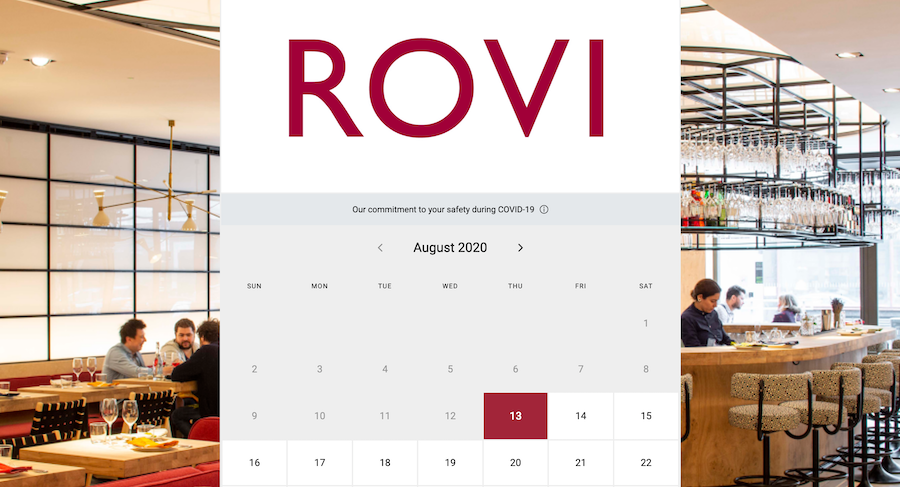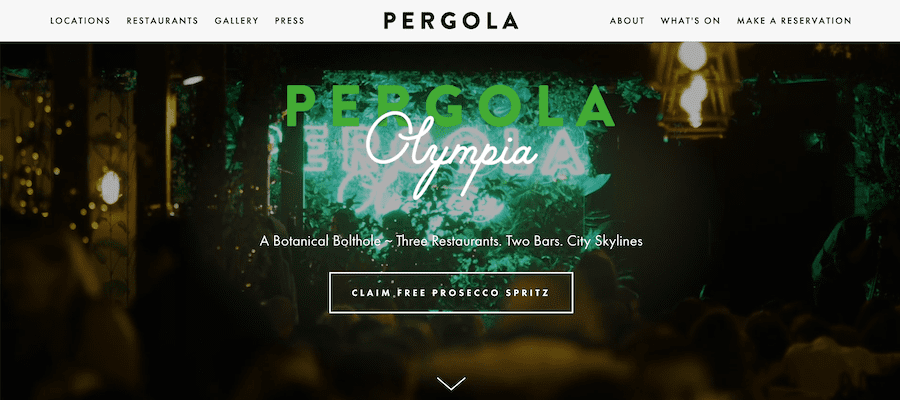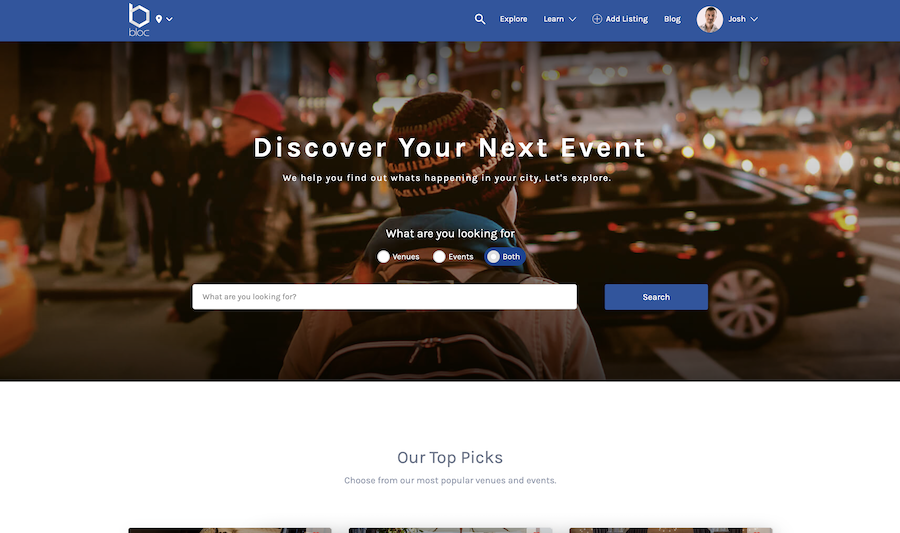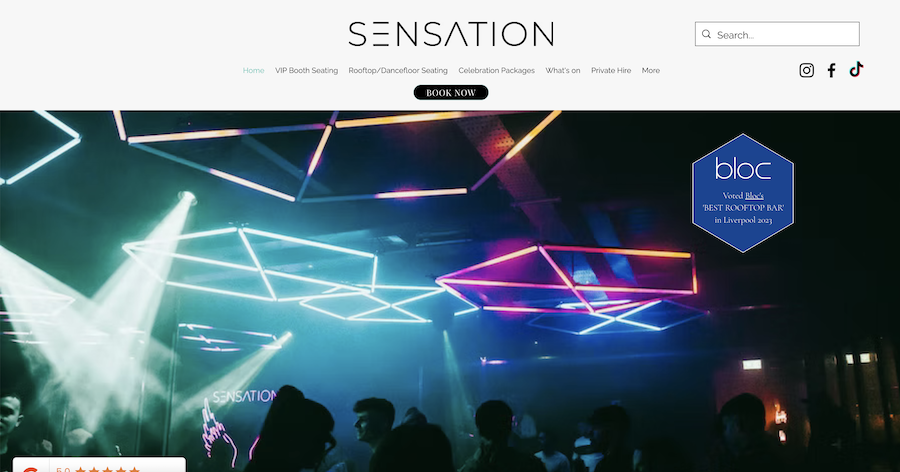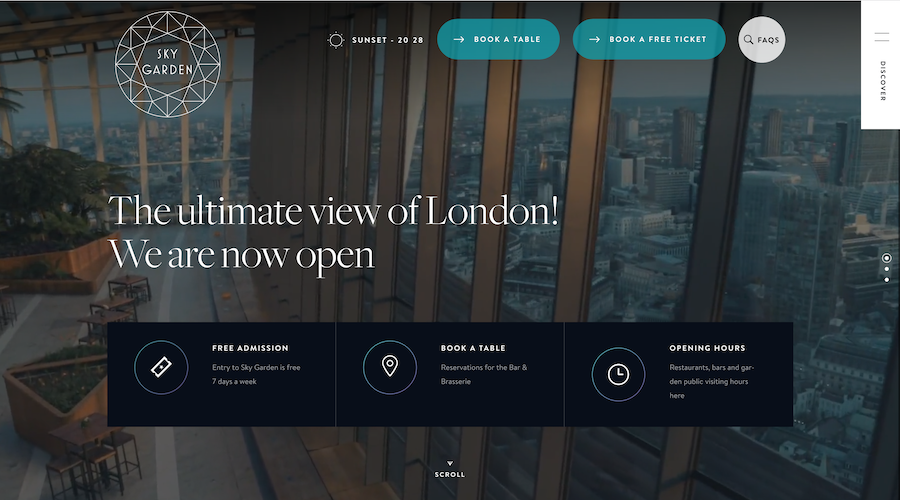Full Guide – How to Build a Perfect Website for a Venue
This guide explains how to build a perfect website for a venue.
How to Build a Perfect Website for a Venue
A perfect website for a venue goes way beyond just having a few pictures and your contact information.
In the world of digital marketing, a perfect website for a venue converts visitors into customers.
Most people now use mobile and the internet to find venues to attend.
This is why having a perfect website is so important, as this will be their first point of call.
It’s also super important to have a modern website that looks professional.
If a website is old, it’s likely going to be missing a lot of key features that are important for marketing.
This guide looks at how to build a perfect website for a venue.
You can use the links below to jump to the section you want to read about:
1. Use high-quality images and photos
2. Include an online reservation tool on the homepage
3. Test your venue’s website across multiple platforms, especially mobile
4. Use lead magnets to build a customer database
5. Make sure an up to date menu is online
6. Include all important information clearly
7. Think about SEO
8. Build backlinks to your website
9. Showcase social proof
1. Use high-quality images and photos
A perfect website for a venue must only have high-quality photos and video.
Visitors will immediately compare the quality of your website to what your venue is going to be like when they visit.
If the website is awful, they’ll assume your venue is awful too.
On your website there should be an array of different types of photos showcasing what the venue’s interior is like, what the exterior looks like and also what the drinks and food look like as well.
It’s definitely good practice including photos and videos of people actually enjoying your venue.
Social proofing is when a venue is accepted as a good place to go because other people are going as well. So, if you show images and video of people enjoying your venue, this will tempt more people to go.
To avoid your website slowing down when loading, always make sure photos and videos aren’t too large. People have no patience for slow loading times.
2. Include an online reservation tool on the homepage
A perfect website for a venue should always include a reservation tool, easily accessible on the homepage.
People nowadays want immediate gratification, which means they don’t like to call or email, which usually leads them in having to wait.
Convenience has become such an important factor in today’s modern world. And online reservation tools are incredibly convenient and allows people to book almost instantly.
You can either build your own reservation tool or use a 3rd party tool like OpenTable or DesignMyNight.
Although these 3rd party software’s do cost, you can tap into their large audiences, which helps bring in customers.
It’s usually best to include your online reservation tool on the homepage, because this is the most easily accessible page on a venue’s website.
3. Test your venue’s website across multiple platforms, especially mobile
A perfect website for a venue doesn’t just work on a desktop. You need to make sure the venue website is optimised on every single device.
Many easy to use website builders utilise drag and drop functionality that works across multiple platforms. Use a website builder that recognises the importance of cross-platform functionality.
Mobile is especially important because most people use mobile to search for venues to attend.
Most visitors to your website will come from mobile.
This is due to the rise in platforms that people are using to find venues to attend.
For example, on Bloc you can advertise your venue in their app where users can click through to your website via the ad.
You also need to look beyond devices and also look at the operating systems and browsers. For example, there are different browsers that venue websites will appear differently on, unless optimised.
Test your venue website across multiple platforms and make sure it looks good on all of them and works seamlessly.
4. Use lead magnets to build a customer database
A lead magnet is a call-to-action button or pop-up that aims to grab a visitor’s contact information in exchange for something.
Unfortunately, 90-99% of a venue’s website visitors won’t make a booking or attend the venue.
This may be because their train has just arrived, or it’s too early in the week to book. Whatever the reason, lead magnets allow you to capture a visitor’s information so you can market to them when they’re ready to book.
The best lead magnets offer something in exchange that a visitor will actually want. For example, you could offer a free drink in exchange for their email address. The visitor simply enters their email and their free drink coupon is emailed to them.
You can also add urgency to this offer by putting a 1-month expiry date on the coupon so you can make sure they come.
It’s win-win, because you get the email address and the potential customer, and they get a free drink.
It’s then likely they’ll stay for more than one drink and bring their friends.
Try adding your lead magnet as a pop-up when they go to exit the page. This has the highest conversion rates.
5. Make sure an up to date menu is online
When visiting your venue’s website, it’s likely your visitor will want to check out your menu.
A perfect website for a venue would always have an easy to find digital menu that’s up to date.
6. Include all important information clearly
A perfect website for a venue will also have all the necessary information presented clearly on the website.
This includes but is not limited to:
– Name
– Address
– Phone number
– Email address
– Opening times
– Other ways to contact e.g. live chat
7. Think about SEO
SEO stands for search engine optimisation and determines how high up a venue will appear on the search engines.
Google’s local pack is especially important because this shows the top 3 results locally for a search phrase. These are the most clicked on results for venues by a considerable amount.
To rank on Google and their local pack there are a few things you need to do.
First, you need to create a Google My Business account and make sure it’s linked to your perfect venue website. Also, make sure all the information required is included.
Second, you need to optimise your website by including keyword phrases multiple times on your website.
For example, if you want to rank for the term ‘best cocktail bar in LA’ then you will need to include this phrase in the text and titles of your website.
Lastly, you need to get as many positive Google reviews for your venue as possible. It’s also best to try and get the phrases you want to rank for included in the reviews.
For example, ‘This is by far the best cocktail bar in LA that I’ve been to’.
To get more reviews you should ask your most loyal customers and their friends to leave a review.
To find the keywords you want to rank for and to see how much traffic they get, you can use Google Keyword Planner and Ubersuggest.
8. Build backlinks to your website
It’s useless having a website if no one is visiting it.
Most websites don’t get traffic because they don’t utilise the power of SEO.
Getting backlinks from other websites not only gives you traffic from that site but Google also counts that as a backlink which will boost your own SEO efforts.
Once you have an incredible website, make sure your URL is posted to as many free directories and platforms as possible.
For example, at Bloc we have created Bloc Nearby which is a free blog whereby you can list your venue for free.
9. Showcase social proof
In today’s digital age, potential customers heavily rely on the experiences and opinions of others before making decisions. Integrating social proof into your website can significantly boost credibility and encourage bookings.
This can be achieved in several ways. One powerful method is embedding social media feeds directly onto your site.
This allows visitors to see real-time updates, photos, and videos posted by previous guests, providing authentic insights into the atmosphere and offerings of your venue.
Another effective approach is featuring customer testimonials prominently.
These can be short quotes or longer reviews highlighting positive experiences, specific aspects of your venue that were appreciated, or even detailing successful events held there.
Ideally, include photos of the reviewers alongside their testimonials to add a personal touch and further enhance trust.
You could also showcase any awards, accolades, or positive press coverage your venue has received.
Displaying these achievements visibly on your website reinforces your reputation and demonstrates your commitment to quality.
By effectively showcasing social proof, you build trust with potential customers, demonstrate the value of your venue, and ultimately drive more bookings.
Afterword
If you follow all the steps above, then you will be going in a good direction to having a perfect website for a venue.
The good thing about a venue’s website is that it can always be improved. Continuous improvement is a Japanese strategy that always works.
Check Google’s analytics to view your website’s statistics constantly.
Look at ‘bounce rates’ and times spent on certain pages. These are particular important to work out whether a page is engaging enough for a visitor to stay on it and consume the information.
Obviously see how many bookings you’re getting each month on your website and try and beat the result month on month.


